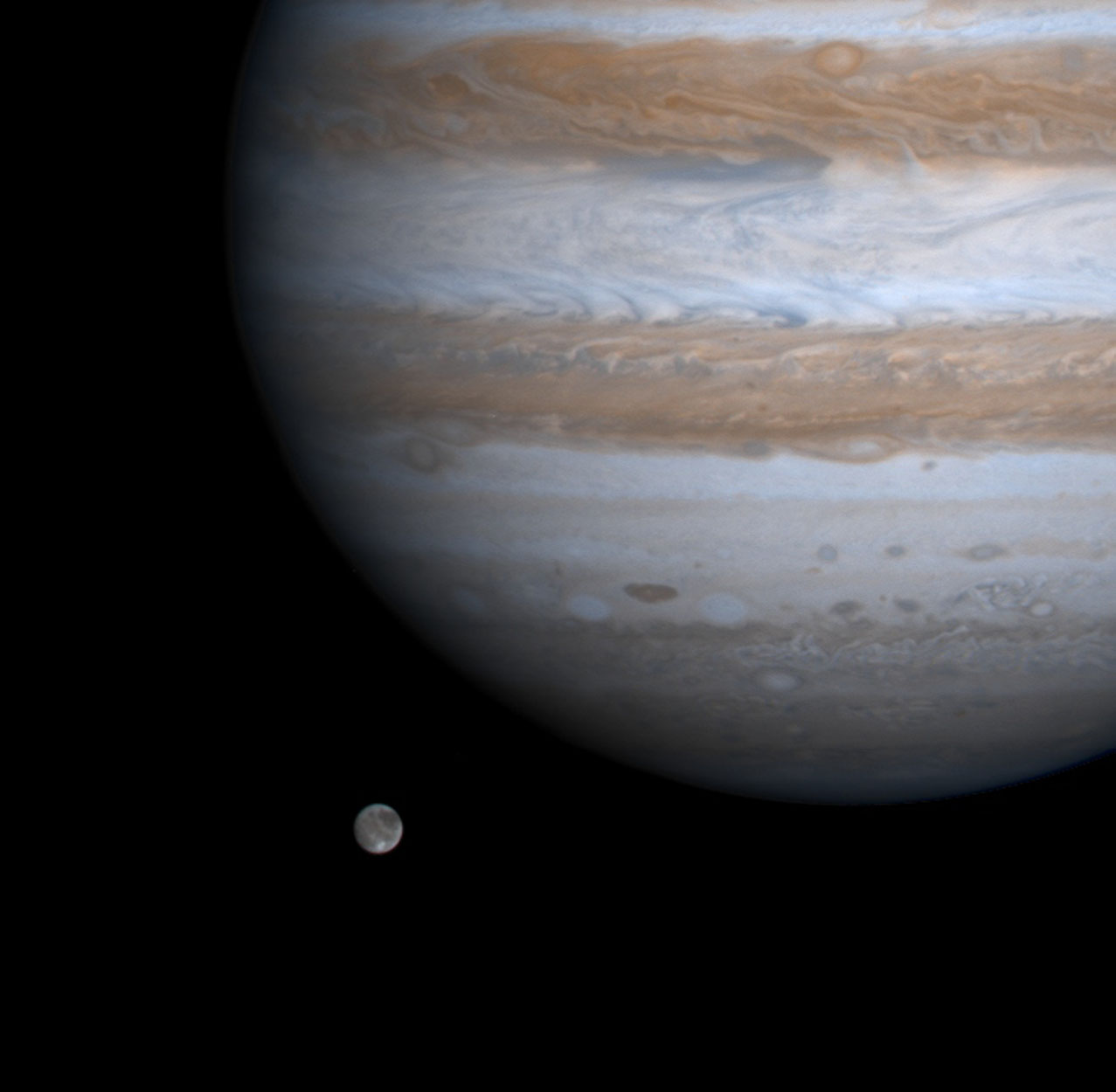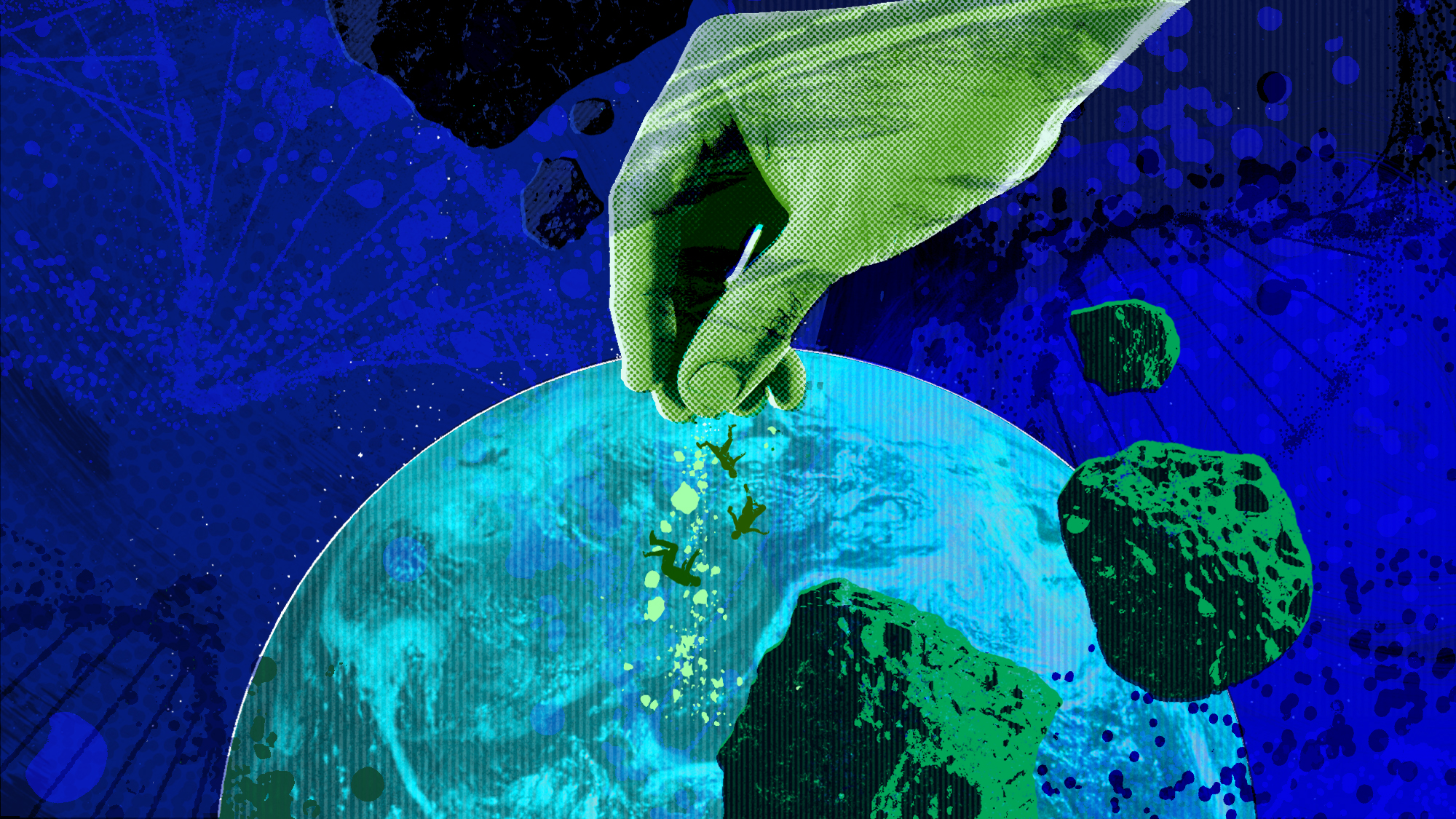How to see Jupiter in the sky tonight

A free daily email with the biggest news stories of the day – and the best features from TheWeek.com
You are now subscribed
Your newsletter sign-up was successful
Tonight might just be your best chance to see our solar system's biggest planet in the night sky.
Jupiter will be in "opposition" on Monday night, meaning that it will form a straight line with the Earth and the sun — an event that happens every 13 months, Smithsonian reports. This means Jupiter will be the closest it gets to the Earth, allowing stargazers a rare chance to glimpse the gas giant through a telescope or binoculars. With the brightness of its presence in the sky tonight, you might even be able to see its four biggest moons, Io, Europa, Callisto, and Ganymede.
Jupiter should be visible from sunset on Monday to sunrise on Tuesday morning, reaching the best height for viewing around 11:30 p.m. ET. Jupiter will be among the brightest objects in the sky, so spotting it will be easy: Just point yourself towards the southeast and look for the next brightest thing after the moon and Venus.
The Week
Escape your echo chamber. Get the facts behind the news, plus analysis from multiple perspectives.

Sign up for The Week's Free Newsletters
From our morning news briefing to a weekly Good News Newsletter, get the best of The Week delivered directly to your inbox.
From our morning news briefing to a weekly Good News Newsletter, get the best of The Week delivered directly to your inbox.
Stargazing is most successful under a clear sky — but if you can't make it out tonight, don't worry. Jupiter might not be quite as bright, but for the rest of June you should still be able to see it. And if the whole month is cloudy, then you'll just have to wait until July 2020, when Jupiter comes into opposition again. Read more at Smithsonian.
A free daily email with the biggest news stories of the day – and the best features from TheWeek.com
Shivani is the editorial assistant at TheWeek.com and has previously written for StreetEasy and Mic.com. A graduate of the physics and journalism departments at NYU, Shivani currently lives in Brooklyn and spends free time cooking, watching TV, and taking too many selfies.
-
 James Van Der Beek obituary: fresh-faced Dawson’s Creek star
James Van Der Beek obituary: fresh-faced Dawson’s Creek starIn The Spotlight Van Der Beek fronted one of the most successful teen dramas of the 90s – but his Dawson fame proved a double-edged sword
-
 Is Andrew’s arrest the end for the monarchy?
Is Andrew’s arrest the end for the monarchy?Today's Big Question The King has distanced the Royal Family from his disgraced brother but a ‘fit of revolutionary disgust’ could still wipe them out
-
 Quiz of The Week: 14 – 20 February
Quiz of The Week: 14 – 20 FebruaryQuiz Have you been paying attention to The Week’s news?
-
 The 5 biggest astronomy stories of 2025
The 5 biggest astronomy stories of 2025In the spotlight From moons, to comets, to pop stars in orbit
-
 Blue Origin launches Mars probes in NASA debut
Blue Origin launches Mars probes in NASA debutSpeed Read The New Glenn rocket is carrying small twin spacecraft toward Mars as part of NASA’s Escapade mission
-
 Dinosaurs were thriving before asteroid, study finds
Dinosaurs were thriving before asteroid, study findsSpeed Read The dinosaurs would not have gone extinct if not for the asteroid
-
 Panspermia: the theory that life was sent to Earth by aliens
Panspermia: the theory that life was sent to Earth by aliensUnder The Radar New findings have resurfaced an old, controversial idea
-
 SpaceX breaks Starship losing streak in 10th test
SpaceX breaks Starship losing streak in 10th testspeed read The Starship rocket's test flight was largely successful, deploying eight dummy satellites during its hour in space
-
 Rabbits with 'horns' sighted across Colorado
Rabbits with 'horns' sighted across Coloradospeed read These creatures are infected with the 'mostly harmless' Shope papilloma virus
-
 Lithium shows promise in Alzheimer's study
Lithium shows promise in Alzheimer's studySpeed Read Potential new treatments could use small amounts of the common metal
-
 Scientists discover cause of massive sea star die-off
Scientists discover cause of massive sea star die-offSpeed Read A bacteria related to cholera has been found responsible for the deaths of more than 5 billion sea stars